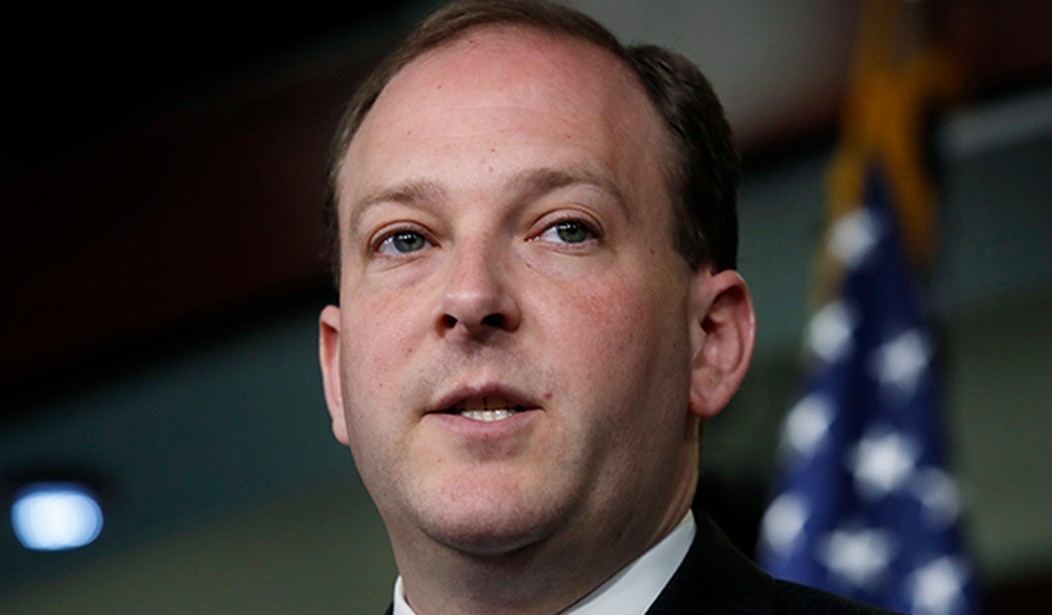On Tuesday, Rep. Lee Zeldin won his primary to become the official Republican Party nominee for governor in New York State. As polling predicted, the matchup will be between him and Kathy Hochul, the state's Democratic governor.
Zeldin's lead over the second-place finisher in a four-way race, Andrew Giuliani, only continues to go up. With an estimated 82 percent of the vote in, Zeldin is at 44.05 percent to Giuliani's 22.91 percent.
New York is still considered a blue state and is often expected to go Democratic. Cook Political Report and Inside Elections regard the race as "Solid Democratic." Sabato's Crystal Ball, however, considers the race to be "Likely Democratic."
Zeldin is undeterred, though. When it comes to his habit of beating Democratic incumbents, and if he believes that will help him, he told Townhall he "wouldn't be in this race otherwise."
He also spoke of the importance of not necessarily believing the polls. In his previous congressional races to represent New York's 1st Congressional District, Zeldin explained that prognosticators had a habit of considering the race to be more of a toss-up than it actually was.
Further, as it stands, Zeldin looks to be beating Giuliani by about 21 points, a figure he told Townhall is in line with internal polling.
A headline from NBC New York on June 22, however, six days before the primary, claimed that the Republican primary was "tight." The poll surveyed 538 likely Republican voters, which indicated that Zeldin had 25 percent support while Giuliani had 23 percent. Nearly a third were undecided.
That same poll indicated that in a matchup between Zeldin and Hochul, the latter would have a commanding lead of 24 points. Internal polling shows the race to be much closer.
Recommended
How did the poll get it so wrong? In addition to the undecided voters, there were sampling issues. Not only are there so few Republicans, but there's also oversampling of areas such as New York City.
Also going for Zeldin is how unpopular Hochul and President Joe Biden are in New York. According to a Civiqs poll, as of June 30, just 38 percent of New Yorkers approve of Biden, while 49 percent disapprove.
A Sienna College poll from last month also showed bad news for Biden and the governor. Just 41 percent of respondents answered they think Hochul is doing an "excellent" or "good" job, while 52 percent think she's doing a "fair" or "poor" job.
"If Kathy Hochul wins the primary for governor later this month, and is the Democratic candidate for governor in 2022, as things stand now, would you vote to elect Hochul as governor, or would you prefer someone else?" another question asked. Voters were pretty evenly split, as 46 percent said they'd elect her, but 44 percent said they'd prefer someone else.
Zeldin cautioned against that poll too, which again oversampled New York City respondents, who account for about 33 percent of the vote.
What is indisputable is that crime and the economy are the top issues. In that Sienna poll, nearly all voters, at 92 percent, said crime was either "very serious" or "somewhat serious." A majority, at 63 percent, said it was "very serious." Zeldin's not depending on polls to be wrong on the state of the race to get him elected, but on tackling these issues, and more.
Zeldin spoke to his website's issues page, with "Securing Our Streets" being top of the list. As part of the comprehensive plan, first on the list includes getting rid of the cashless bail system that has plagued the state and "Remove District Attorneys who don't enforce the law."
In speaking with Townhall, Zeldin made it clear he's speaking about Manhattan District Attorney Alvin Bragg. Like other Soros-backed DAs, Bragg has let criminals run wild in Manhattan, with many crimes caused by repeat offenders who should not be back on the streets.
When it comes to the economy, Zeldin also shared he is looking to cut taxes, which is mentioned in his "Protecting Your Wallets" section.
Zeldin looks to have handily won the Republican primary and will continue his winning strategy for the general election. He emphasized that getting in the race particularly early in April of last year certainly helped to set him up for the general, not just for the primary. Zeldin will continue his strategy of ads, mailers, and press conferences and traveling the state to meet with voters.
As a candidate, Zeldin has also met with non-Republicans. "Since we got in this race in April 8th of last year, I have been meeting with Democrats and independents and groups that are political, other groups that aren't political, to build a broad coalition." He's spoken to "Hispanic voters in the South Bronx, black pastors in Sunnyside, Queens and Asian-Americans in Flushing and Chinatown and Jewish voters in Williamsburg and Flatbush," sharing, "We've been all over New York City," with similar meetings in other cities like Syracuse and Rochester.
Zeldin stressed this includes "people who didn't have a vote in the Republican primary, but absolutely do have a vote in the general election."
The Republican Party has been engaging in outreach efforts, including with the Hispanic community. Last month, Rep. Mayra Flores won a seat not held by a Republican in more than 100 years, becoming the first Mexican-born member elected to Congress. At a press conference last month, which Townhall attended, she spoke about the importance of engaging with voters who may not have met a Republican before.
If elected, Zeldin would be New York's first Jewish Republican governor and the state's first Republican governor since George Pataki was elected in 1994 in that year's red wave.

























Join the conversation as a VIP Member